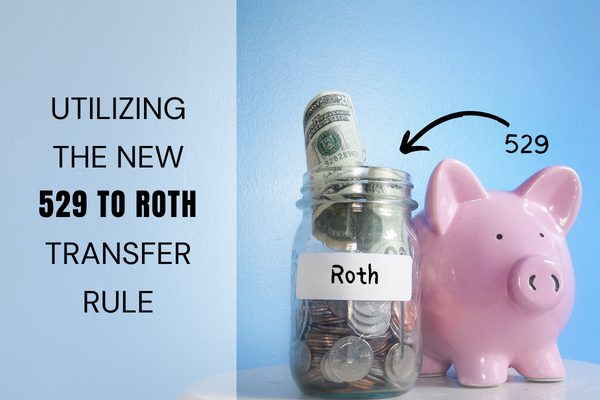The 2025 Estate Tax Exemption Sunset: What You Need to Know

Market Perspectives October 2024
October 11, 2024
Market Perspectives November 2024
November 11, 2024
By: Audrey Blanke, Lyric Martin, and Bridget McDermott
As the calendar marches toward December 31, 2025, a significant financial planning milestone is approaching: the sunset of the current estate tax exemption. This change could have substantial implications for families and individuals with larger estates. It’s essential to understand how this shift may affect you and, more importantly, how to prepare.
What is the Estate Tax Exemption?
The federal estate tax exemption allows individuals to pass a certain amount of wealth to heirs without incurring federal estate taxes. Under the Tax Cuts and Jobs Act (TCJA) of 2017, the estate tax exemption was doubled, allowing individuals to transfer up to $13.61 million (as of 2024) free of federal estate tax. For married couples, this amount is doubled to $27.22 million.
However, these provisions are temporary. On December 31, 2025, the estate tax exemption will revert to pre-TCJA levels unless Congress acts, meaning the exemption may drop to around $7 million per individual. Estates exceeding this amount may face a federal estate tax rate as high as 40%.
Who Should Be Concerned?
This looming change is of particular importance to individuals and families with estates valued above the projected post-2025 exemption threshold (around $7 million per individual). If your estate exceeds this amount, estate tax could significantly reduce the wealth passed to your heirs.
Even if your current estate value is below the exemption, rising asset values, appreciation of investments, or changes in other assets could push you into the taxable range by the time of your passing.
How to Prepare for the Estate Tax Sunset
Proactive planning is crucial to mitigate the potential tax burden after 2025. Here are several strategies to consider:
- Lifetime Gifting
One of the most effective ways to reduce your taxable estate is by making lifetime gifts. The current exemption allows you to transfer significant wealth to heirs without triggering estate taxes. You can make gifts up to the current exemption amount of $13.61 million (per person) before the exemption drops. These gifts can be direct or through trusts to ensure control over how the assets are used.
- Utilize Annual Gift Exclusions
Each year, you can give up to $18,000 per recipient (as of 2024) without affecting your lifetime estate and gift tax exemption. Gifting to multiple family members over several years can gradually reduce the size of your estate and future tax burden. If you are married, you and your spouse can leverage your combined annual exclusion to give $36,000 per recipient (2024). You can also pay education and medical costs directly in addition to making annual gifts.
- Set Up Trusts
Trusts are a valuable tool in estate planning, allowing you to control how and when assets are distributed. Irrevocable trusts, in particular, can move assets out of your taxable estate while allowing you to direct their use. It’s essential to work closely with an estate planning attorney to understand the type of trust that is best for your unique situation.
- Charitable Giving
Donating to charity can help reduce the size of your taxable estate while benefiting causes you care about. Charitable remainder trusts or direct gifts to charities are effective options for reducing estate taxes.
- Review and Update Your Estate Plan
Given the potential changes, it’s critical to review your estate plan and make necessary adjustments before 2026. This may include revisiting existing wills, trusts, and gifting strategies, especially if they were set up before the current exemption limits were established. It’s essential to work closely with an estate planning attorney and financial advisor to ensure your plan aligns with your long-term goals.
Timing Is Key
Although December 31, 2025, may seem far off, the complexity of estate planning requires time to execute. Tax rules, financial markets, and personal circumstances can change, so starting the conversation now with your estate planning team will ensure that you have flexibility and peace of mind.
At Carolinas Investment Consulting, we are here to help you navigate these potential upcoming changes.
Final Thoughts
The upcoming sunset of the current estate tax exemption could affect many families and individuals, particularly those with estates above $7 million. Taking action before the end of 2025 may allow you to maximize your estate tax savings and secure your family’s financial future.



